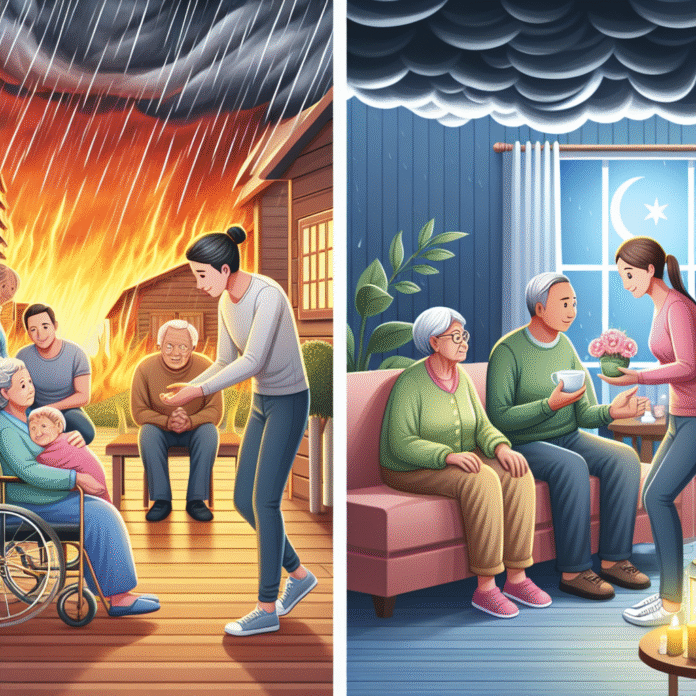Supporting Individuals with Dementia in Times of Natural Disasters
The Good Men Project
Supporting Individuals with Dementia During Natural Disasters
Natural disasters pose significant challenges for everyone, but for those living with dementia, the effects can be particularly distressing. Individuals with cognitive impairments may struggle to understand the urgency of evacuation or the nature of the emergency, leading to increased anxiety and confusion. As communities face the realities of climate change and more frequent natural disasters, it’s essential to develop comprehensive strategies to support this vulnerable population.
Understanding the Impact of Disasters on Dementia Patients
Dementia can affect memory, judgment, and reasoning, making it difficult for individuals to respond appropriately during crises. During natural disasters, the chaos and disruption can exacerbate these challenges. Familiar surroundings may become unrecognizable, and routines that provide stability are often disrupted. This can lead to heightened levels of stress and confusion for individuals with dementia, making it crucial for caregivers and emergency responders to be well-prepared.
Preparation is Key
Preparation is vital for ensuring the safety of individuals with dementia during natural disasters. Families and caregivers should create a personalized emergency plan that includes:
– **Emergency Contacts**: Maintain a list of important contacts, including healthcare providers and family members.
– **Medication Management**: Ensure an adequate supply of medications, along with clear instructions for administration.
– **Identification**: Use medical alert bracelets or identification cards that include essential information about the individual’s condition.
– **Familiar Items**: Pack a “go bag” with comforting items, such as photographs, favorite books, or sensory objects that can help alleviate anxiety.
– **Communication Plan**: Establish a simple communication strategy that includes easy-to-follow steps for what to do in an emergency.
Training for Caregivers and Emergency Responders
It is essential that caregivers and emergency personnel receive training on how to effectively communicate and assist individuals with dementia during a crisis. This training should include:
– **De-escalation Techniques**: Learn strategies to calm distressed individuals and reduce anxiety.
– **Understanding Behavioral Cues**: Recognize signs of confusion or fear and respond appropriately.
– **Creating Safe Spaces**: Know how to create environments that minimize confusion and provide a sense of security.
Community Resources and Support
Communities should work together to develop resources specifically aimed at supporting those with dementia during emergencies. This could include:
– **Dementia-Friendly Evacuation Centers**: Designate safe spaces equipped with staff trained to assist individuals with cognitive impairments.
– **Public Awareness Campaigns**: Raise awareness about the unique needs of dementia patients during disasters, helping community members understand how to provide support.
– **Collaboration with Local Organizations**: Partner with local Alzheimer’s associations and healthcare facilities to ensure a coordinated response during emergencies.
Post-Disaster Support and Recovery
After a natural disaster, individuals with dementia may require ongoing support to help them navigate the aftermath. Recovery efforts should include:
– **Mental Health Resources**: Access to counseling and mental health support to address trauma and anxiety caused by the disaster.
– **Re-establishing Routines**: Help individuals return to familiar routines and environments to provide stability during a time of uncertainty.
– **Community Engagement**: Encourage social interaction and community involvement to reduce feelings of isolation and promote well-being.
In conclusion, while natural disasters can pose significant risks to individuals living with dementia, proactive planning and community support can mitigate these challenges. By understanding their unique needs and implementing effective strategies, we can create a safer environment for those affected by dementia during emergencies.
